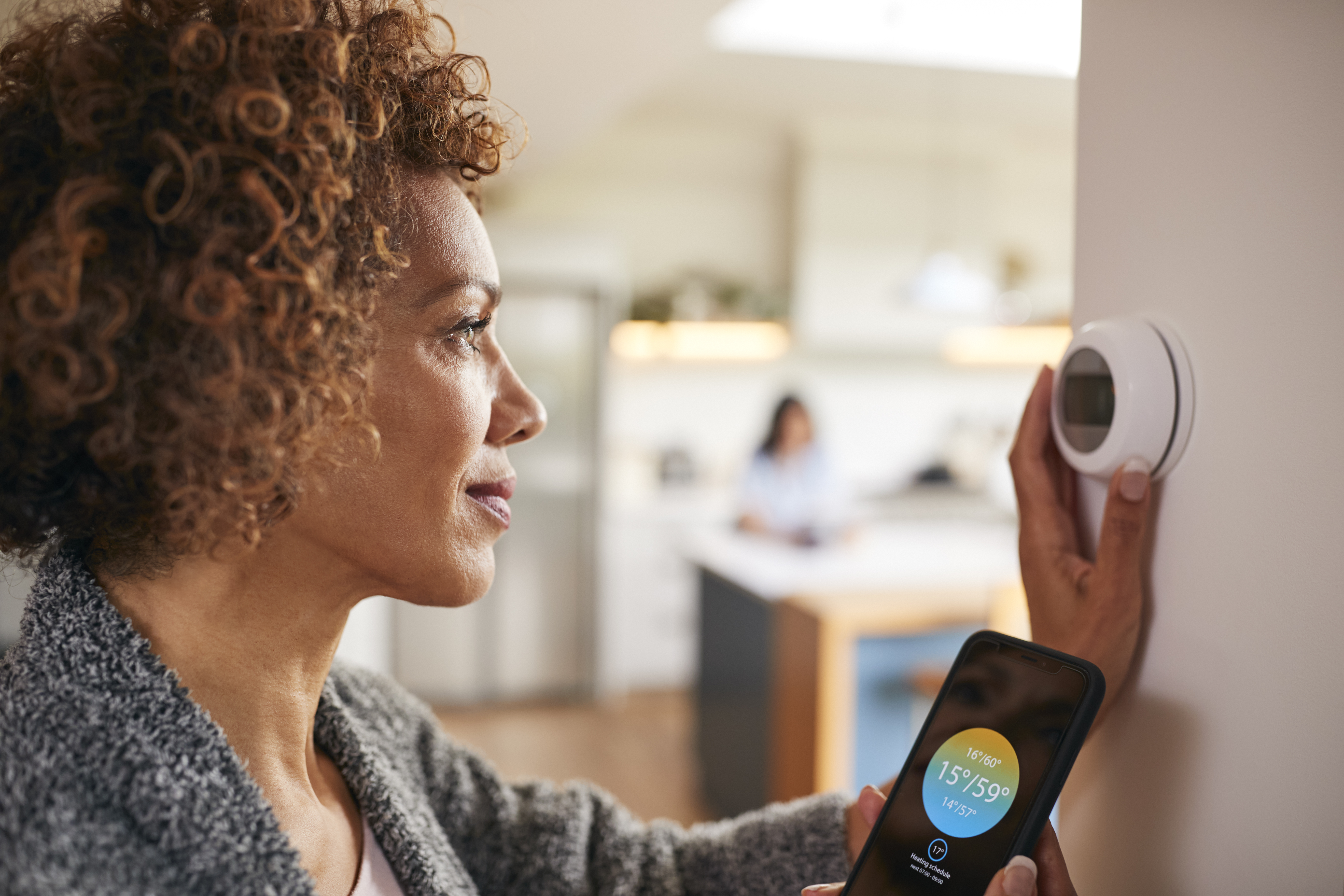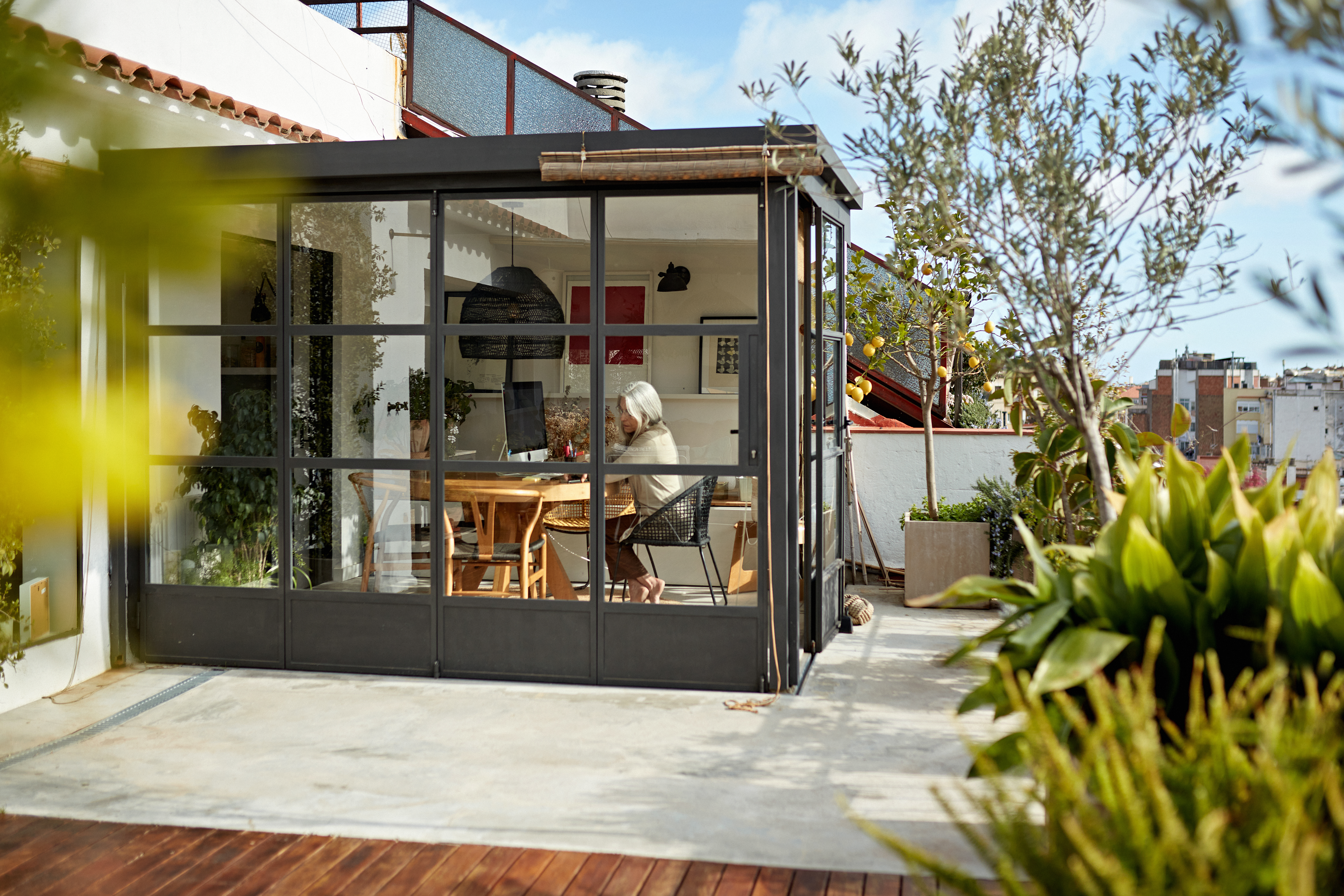Do Solar Panels Work at Night?
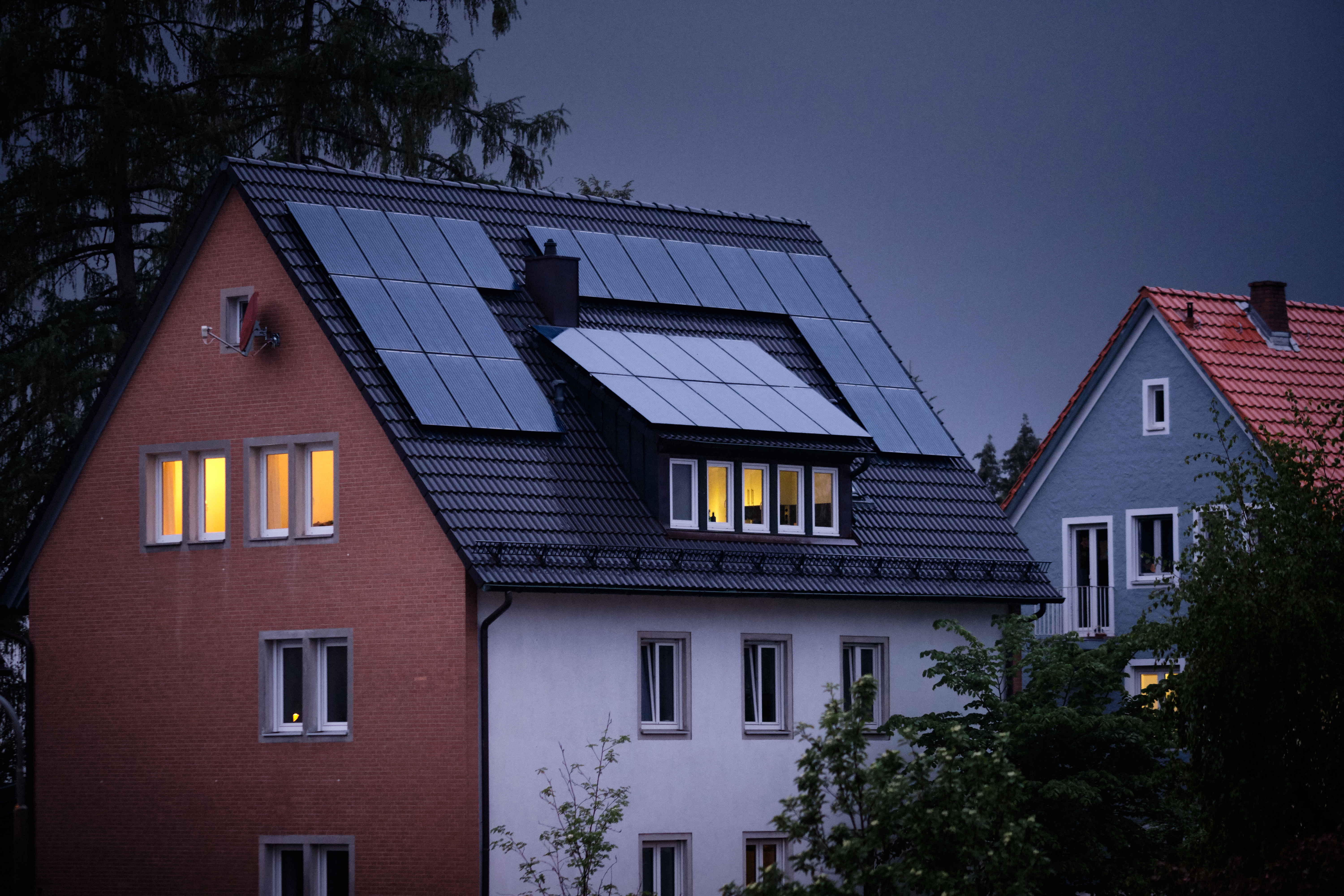
Making the shift to living a more eco-friendly lifestyle can seem intimidating. However, one home upgrade can make a major impact on helping you live a sustainable life and reduce your carbon footprint: solar power. Using solar energy to power your home isn’t just better for the environment, it’s also better for your wallet.
If you’re thinking of making the switch from electricity to solar energy, you probably have a lot of questions about solar panels for homes. One question many homeowners wonder is whether solar panels work at night. Below, we’ll explain the answer, and give you additional information on storage options.
What Are Solar Panels?
First and foremost: what are solar panels? Solar electric panels use photovoltaic (PV) cells to convert sunlight into direct current (DC) electricity. Solar energy is power from radiant light and heat emitted from the sun. That solar energy is then used to power your house, instead of traditional electricity from the grid. In order to generate enough solar energy to power your house, you need a number of solar panels connected together.
For instance, in most parts of California, an 8 kilowatt (kW) solar system typically covers the energy consumption for the average household. The number of panels will vary based on output and manufacturer, but expect anywhere from 21 to 28 panels for an 8 kW system.
How Do Solar Panels Work?
Now that we know what solar panels are, let’s get more into detail about how solar panels work. This is the process broken down into four key steps:
- PV cells absorb the sun’s energy and then convert it to DC electricity.
- This power is then sent through the solar inverter where it converts DC electricity to AC electricity.
- AC electricity is used by most households.
- Electricity then flows throughout your house.
- Any energy that is produced but isn’t used will get sent back to the electric grid.
However, now you may be wondering, how do solar panels work at night? Below, we’ll discuss how solar energy is used once the sun goes down.
Do Solar Panels Work at Night?
So, does solar power work at night? In short, the answer is yes. Energy from the sun is captured and then stored in your system, allowing it to be used once the sun goes down.
How Do Solar Panels Draw Power at Night?
While solar panels can power your house at night, they do not draw power at night. The reason for this is fairly simple: solar panels need sunlight to draw power, and there is no sun at night. The same goes for cloudy and rainy days.
So then does a solar inverter work at night? No, solar inverters turn off at night as they need sunlight to work.
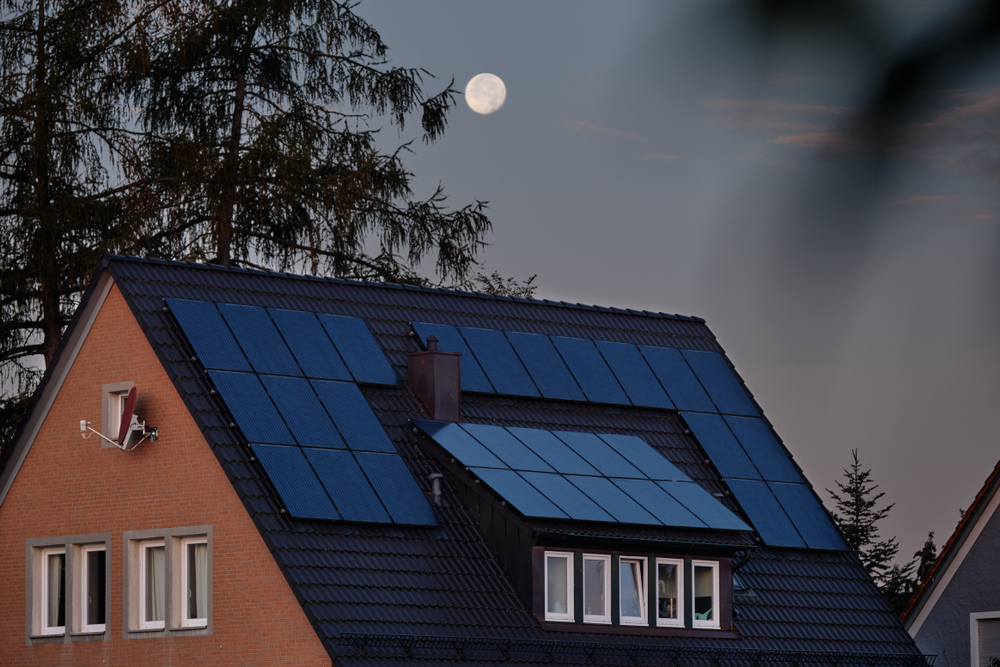
How Do Homes with Solar Panels Have Power at Night?
There’s a reason why homes with solar panels still have power at night; the electricity doesn’t just go out the second the sun goes down. Although solar panels produce no electricity at night, your home solar panels won’t quit working the instant the sun goes down.
Solar PV systems are either connected to the power grid, or rely on battery backup if your home is off the grid. For grid-tied systems, any excess energy that your solar panels produce will be fed back to the power grid. You can then access that energy at night. If you have a battery backup system, your panels will charge the batteries during the day, and you can use the stored energy to maintain a consistent stream of power throughout the night. We’ll cover this in more detail in the sections below.
How Do Solar Panels Work When There’s No Sun?
Do solar panels work at night? We know the answer is yes, but what about when it’s cloudy? Do they work during rain, wind, snow, or other inclement weather? Let’s dive into how solar panels work when there’s little-to-no sun.
Your solar panels will still work as long as there is some amount of sunlight. On rainy or cloudy days, solar panels can still produce some energy; however, it is significantly less than usual. Rain can even benefit your solar panels by washing away debris that might be interfering with their effectiveness. The same goes for any type of shade. Although full, direct sunlight works best, solar panels with indirect sunlight will still function.
It is also important to note that solar panels don’t need to be reserved for homes in sunny places. In fact, solar panels can work in places where it snows, and may even work better in cooler climates, as opposed to those that are hotter than average.
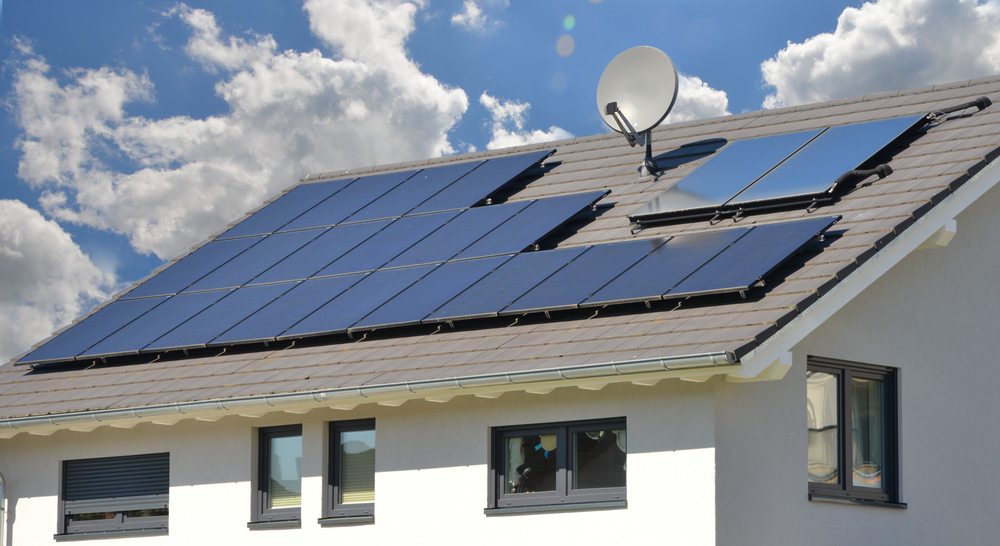
How Is Solar Energy Stored?
As we mentioned above, solar panels don’t produce energy at night, but their excess power can be used during off-hours. Most solar systems are designed to produce more power during the day than needed, which can be stored on the grid through net metering or via battery back-up. Let’s dive a little deeper into how to store solar energy at home:
Solution 1: Solar Battery Storage
You can think of solar battery storage as your solar panels working the night shift. Solar battery storage makes the most out of your daytime solar energy production. Since solar panels are designed to produce a surplus of power, that power can be stored for future use rather than just going back to the electric grid.
Installing solar battery storage means that you don’t have to depend on the grid to generate power. If you live in a rural or remote area and can’t easily tap into the grid, battery storage is crucial. Having solar battery storage is also beneficial in the case of a power outage or natural disaster. For instance, if your solar panels get damaged, you’ll still have power stored.
Solution 2: Net Metering
Net metering is the second option when it comes to storing solar energy to use at night. Net metering is essentially like an energy savings account. The extra power your solar panels produce will go to the electric grid, which you will then receive credit for. Those credits will accumulate in your account and your electric company will give you a reimbursement for them. Net metering takes effect when your solar panels aren’t producing energy at night. Since you can store the economic value of the extra energy you produce during the day, net metering essentially can cancel out your electricity bill.
The only downside to net metering is that it’s not available in every state just yet. As of 2021, net metering laws have been enacted in 41 states, in addition to Washington D.C., the U.S. Virgin Islands, Puerto Rico, and American Samoa.
Are Solar Panels Worthwhile if They Don’t Gather Energy at Night?
Do solar panels work at night? While we know the answer is yes, solar panels don’t generate new energy at night. So that begs the question: are solar panels worthwhile if they don’t gather energy at night?
This is a reasonable concern if you’re looking for the most economical and energy-efficient way to power your home. However, it’s important to note that solar panels are still very much worthwhile. You’re still able to use the stored energy to power your house and save money on electricity, even when your solar panels aren’t necessarily in use. Let’s get into the solar energy advantages and disadvantages to help you make an informed decision:
Advantages
- Can lower utility bills by offsetting the amount of power you actually need from the grid
- Is a potential return on investment
- Protects against rising utility costs as solar power usage does not contribute to your utility bill
- Reduces your carbon footprint
Disadvantages
- The initial cost of installing solar panels is high
- Solar panels are weather dependent and work best in certain climates
- Solar energy storage is expensive
- Solar panels require a lot of space
Overall, installing solar panels is a great way to reduce your home’s carbon impact. There are also solutions for most of those disadvantages! If you don’t like the way solar panels look on your roof, you can opt for solar tiles, which work the same way but have a sleeker design.
If the up-front costs of solar installation are too high for you, consider PACE financing. PACE is specifically designed to help homeowners make eco-friendly home improvements, like adding solar panels. It’s important to note that PACE financing is not a loan but a property assessment—meaning financing is tied to the property itself and you make payments along with your property taxes. Approval is based primarily on the equity you have in your home, not your credit score. With PACE financing, you benefit from low fixed interest rates and flexible payment options.
In addition to solar panels, there are also solar water heating systems. Solar water heaters are heating systems that source their energy from the sunlight from solar panels. This energy is then converted into heat and is transferred to a water tank to heat your home’s water supply. Heating your water is just another thing that solar panels can do. Using these solar water heating systems can increase your water efficiency and ultimately save you more money on your utility bills.
Harness the Sun’s Light to Power Your Home Day & Night
If you’re considering making your home more eco-friendly, solar panels are an excellent place to start. There are countless benefits of switching to solar energy. It’s better for the environment, it’s better for the value of your home, it’s better for your wallet. Solar panels are useful for both the day and the night and can even cancel out your electricity bills. And don’t let the initial cost of solar panels deter you, PACE financing can provide the funding you need for solar installation, allowing you to reap the benefits now, while splitting the cost over years to come. So what’s stopping you? Reduce your carbon footprint and look into solar panels today!

